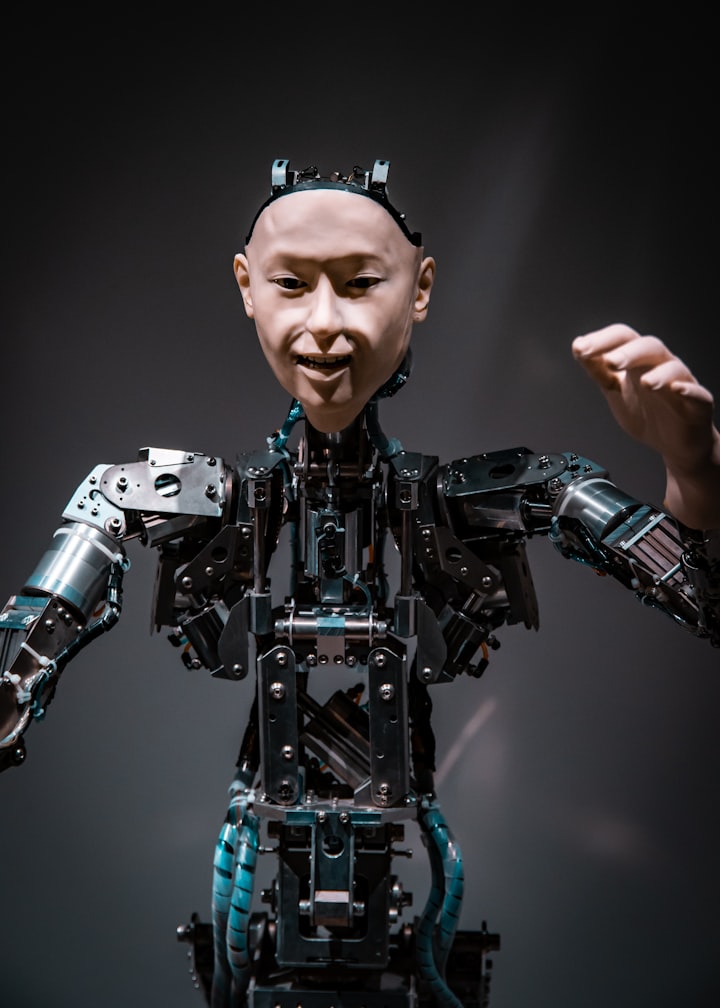The Artificial Intelligence
The Rise of Artificial Intelligence in Healthcare.

Artificial intelligence (AI) has been making waves in the healthcare industry in recent years. From drug discovery to personalized treatment plans, AI has the potential to revolutionize the way we approach healthcare. In this article, we will explore the rise of artificial intelligence in healthcare and its potential implications for the future of medicine.
One of the most significant areas where AI is making an impact in healthcare is drug discovery. Traditional methods of drug discovery are time-consuming and costly, and they often yield low success rates. AI can help to accelerate the drug discovery process by analyzing vast amounts of data and identifying potential drug candidates. Machine learning algorithms can also be used to predict the effectiveness of different drugs based on patient data, which can help to improve treatment outcomes.
AI is also being used to personalize treatment plans for patients. By analyzing patient data, AI algorithms can identify patterns and make predictions about the effectiveness of different treatment options. This can help doctors to develop personalized treatment plans that are tailored to the individual needs of each patient. This approach can lead to better treatment outcomes and improved patient satisfaction.
Another area where AI is making an impact in healthcare is medical imaging. AI algorithms can analyze medical images such as X-rays, CT scans, and MRI scans to identify patterns and make predictions about the presence of disease. This can help doctors to make more accurate diagnoses and develop more effective treatment plans. AI algorithms can also help to reduce the time and cost associated with analyzing medical images, which can lead to faster diagnoses and treatment.
AI is also being used to improve patient monitoring and disease management. Wearable devices and sensors can collect vast amounts of data about a patient's health status, which can be analyzed by AI algorithms to identify patterns and make predictions about the progression of disease. This can help doctors to detect and respond to changes in a patient's health status in real-time, leading to better treatment outcomes and improved patient satisfaction.
Despite the potential benefits of AI in healthcare, there are also some concerns about its use. One concern is the potential for AI to perpetuate biases in healthcare. AI algorithms are only as unbiased as the data they are trained on, and if the data is biased, the algorithm will be biased as well. This could lead to unequal treatment of patients based on factors such as race or gender.
Another concern is the potential for AI to replace human doctors and healthcare providers. While AI can be a powerful tool for improving healthcare, it is not a substitute for human expertise and compassion. It is important to strike a balance between the use of AI and the involvement of human healthcare providers in the delivery of care.
There is also a need for greater regulation and standardization of AI in healthcare. As AI continues to be integrated into various aspects of healthcare, there is a risk that standards and regulations may vary across different providers and jurisdictions. This could lead to inconsistencies in care and potentially compromise patient safety. It is important for policymakers and healthcare organizations to work together to develop clear standards and regulations that ensure the safe and effective use of AI in healthcare.
In conclusion, the rise of artificial intelligence in healthcare is a promising development that has the potential to revolutionize the way we approach medicine. From drug discovery to personalized treatment plans, AI can help doctors to provide better care to their patients. However, it is important to address concerns about bias and the potential for AI to replace human healthcare providers. By striking a balance between the use of AI and the involvement of human healthcare providers, we can ensure that patients receive the best possible care.






Comments
VocalVibes is not accepting comments at the moment
Want to show your support? Send them a one-off tip.